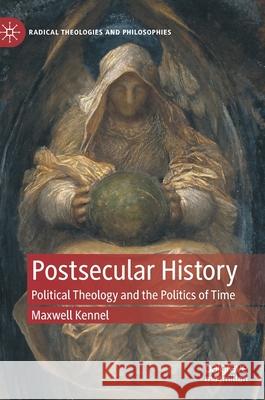Postsecular History: Political Theology and the Politics of Time » książka
topmenu
Postsecular History: Political Theology and the Politics of Time
ISBN-13: 9783030857578 / Angielski / Twarda / 2021 / 240 str.
Postsecular History: Political Theology and the Politics of Time
ISBN-13: 9783030857578 / Angielski / Twarda / 2021 / 240 str.
cena 484,18
(netto: 461,12 VAT: 5%)
Najniższa cena z 30 dni: 462,63
(netto: 461,12 VAT: 5%)
Najniższa cena z 30 dni: 462,63
Termin realizacji zamówienia:
ok. 16-18 dni roboczych.
ok. 16-18 dni roboczych.
Darmowa dostawa!
Kategorie:
Kategorie BISAC:
Wydawca:
Palgrave MacMillan
Seria wydawnicza:
Język:
Angielski
ISBN-13:
9783030857578
Rok wydania:
2021
Wydanie:
2022
Numer serii:
000806847
Ilość stron:
240
Waga:
0.46 kg
Wymiary:
21.01 x 14.81 x 1.75
Oprawa:
Twarda
Wolumenów:
01
Dodatkowe informacje:
Wydanie ilustrowane











